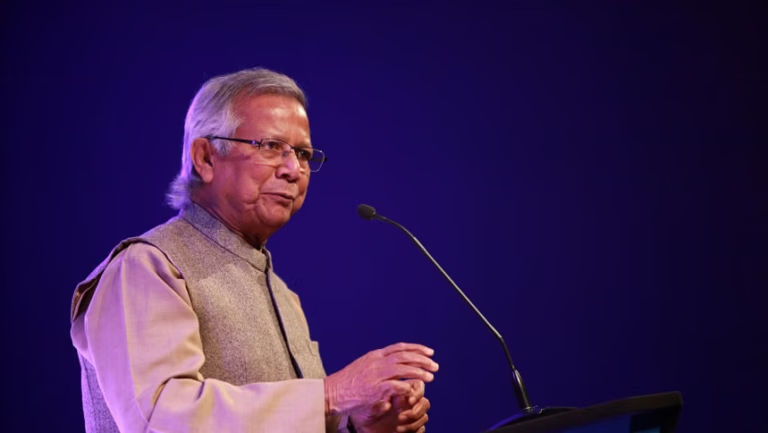In a nationally televised address on the occasion of Independence Day and Eid-ul-Fitr, Chief Advisor of Bangladesh’s Interim Government, Prof. Muhammad Yunus, unveiled a series of ambitious reforms aimed at boosting foreign investment, digitalizing government services, and empowering the nation’s youth.
Prof. Yunus highlighted Bangladesh’s growing global reputation, noting the increased interest from international investors since the interim government took office. He pointed to ongoing discussions with global companies such as DP World, PSA Singapore, and AP Moller Maersk, who have expressed interest in investing billions of dollars, particularly in port and logistics infrastructure.
“We anticipate new foreign investments soon,” the Chief Advisor stated, emphasizing the international enthusiasm generated by Bangladesh’s participation in the UN General Assembly last September and the World Economic Forum in Davos, where he engaged in 47 separate meetings.
Among the notable partnerships being pursued is one with the United Arab Emirates (UAE), which has shown interest in developing an industrial zone in Bangladesh, with potential projects including halal meat and fish processing plants and the management of a new seaport.
Additionally, Prof. Yunus revealed plans for an official visit to China, where he will meet President Xi Jinping and engage with CEOs of major Chinese companies. Talks are ongoing with Longji, the world’s largest solar panel manufacturer, about establishing production facilities in Bangladesh.
Digital Reforms and Anti-Corruption Measures
A key aspect of the address was the government’s push for technological reforms to combat corruption. Prof. Yunus stressed that citizens should no longer have to physically visit government offices for routine services. He announced the introduction of e-filing systems across all ministries, with efforts already underway to digitalize land services and streamline passport issuance. In a significant move, the requirement for police verification for passport applications was removed, allowing for faster processing of over 70,000 pending passports.
Expatriate Bangladeshis have also benefited from online ticketing systems, which have helped reduce airfare costs by up to 75%. Additionally, changes to power of attorney rules aim to ease bureaucratic challenges for citizens abroad.
Legal Reforms and Civil Liberties
Prof. Yunus outlined legal reforms aimed at addressing past political repression. The government has begun dismissing thousands of politically motivated cases filed under the previous administration. To date, 6,295 such cases have been recommended for withdrawal, including 413 filed under the controversial Cyber Security Act, which the government plans to repeal in favor of a more citizen-friendly version.
Citizens can now file General Diaries (GDs) online, eliminating the need for police station visits. The government also called for public input on how to further enhance access to digital public services.
Empowering Youth and Advancing Technology
The Chief Advisor emphasized the importance of empowering Bangladesh’s large youth population through digital infrastructure and entrepreneurship. A new ‘Youth Entrepreneurship Policy 2025’ has been introduced to position young people as leaders in driving both economic and environmental progress. The policy is aligned with the Sustainable Development Goals and aims to recognize the social contributions of youth-led enterprises.
In another major technological development, Prof. Yunus announced discussions with Starlink founder Elon Musk to expand satellite internet coverage to Bangladesh. A commercial agreement is expected within three months, which could bring high-speed internet access to even the most remote areas of the country. “If Starlink is launched, no government in the future will have the opportunity to shut down internet service or block people’s information,” he added.
Improving the Hajj Experience
The Chief Advisor also introduced a new mobile app designed to assist Bangladeshi pilgrims during Hajj. The app will provide real-time guidance in Bengali, financial tools, luggage tracking, daily prayer reminders, and access to medical support, ensuring a more seamless and connected pilgrimage experience.
Prof. Yunus concluded his address by urging the public to share suggestions for improving digital services and called on those with the means to become service providers from anywhere in the world.



